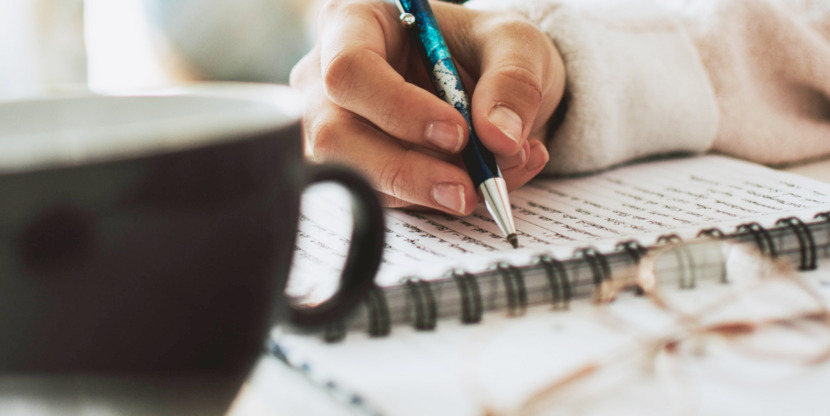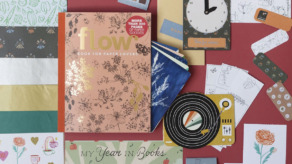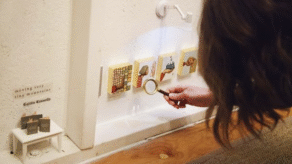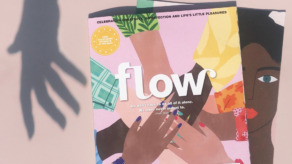6 tips to help you write more and better

Music, a nice location, unlined paper: here are some tips to help get you started with writing.
1. Rituals
To be able to listen carefully to your thoughts and write them down, it helps if you can relax, for example, by setting up a writing ritual. In her book The writing life, American author Annie Dillard describes what you need as a writer to come up with a book: you have to prepare yourself to get inspired, but at the same time you shouldn’t get so wound up you can hardly sit still. ‘How do you prepare yourself, all alone, to enter an extraordinary state on an ordinary morning?’ Dillard writes. The answer: with rituals. Rituals calm the mind. They are aimed at turning you inward, so that you are not distracted by anything that happens around you.
2. A nice location
Choose a space where you can feel relaxed and a time when you will not be disturbed. Switch off your phone (and all other electronics) and find yourself a cleared table, so that nothing will distract you while you are writing. Also, no coffee or water, because as soon as you take a sip of coffee, another thought may come up about the coffee machine that still needs to be cleaned. This is how you can concentrate completely on writing for some 20-25 minutes.
3. Music
Music has a calming yet stimulating effect on your mind. Baroque music — especially Bach — is particularly relaxing and at the same time brings you into a state of alertness. The interesting thing is that the more you get into the writing, the less you hear the music. But if you come to a point when you don’t know what comes next, then listening to music can help you get back into that form of relaxation. Especially as rest is so important for listening to your thoughts and writing them down. But don’t worry if you don’t like classical music. On Spotify, for example, you can search for music that also has a calming and stimulating effect under ‘Browse’ and then ‘Focus’.
4. Light a candle
Light a candle before you start writing; this can help you to concentrate and turn inward.
5. Timer
Use a timer, or your music playlist, to set the duration. The ideal time span is between 20 and 25 minutes; that is the optimal period for concentration. After that, if you still feel the need to write some more, it’s better to go for a walk or fetch a coffee first and then repeat the whole ritual. When you’ve got more experience, planning a half or full day works well to examine what’s going on in your life at that moment. You will find answers coming to you that you would never have heard by only thinking hard about it.
6. Blank paper
Unlined paper gives you the opportunity to write exactly as you want. It doesn’t have to be neat between the lines the way it was at school. Skewed or straight, sheets full or simply one leaf: Just do it the way it comes to you. Don’t let yourself get bothered by the rules that you may have once learned about writing as well or as neatly as possible, and let go of any ideas about ‘this is how it must be written’. The point is that you’re discovering what you really think and feel — instead of what you think you should think or feel.






